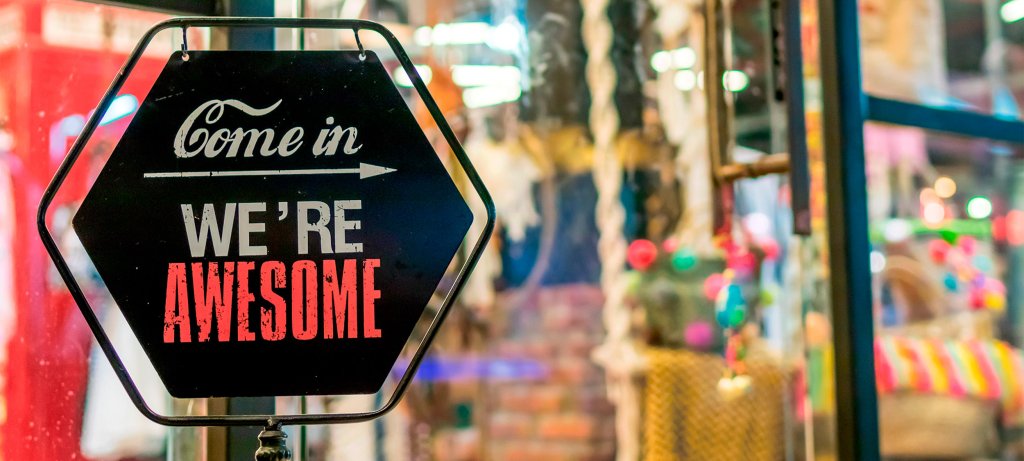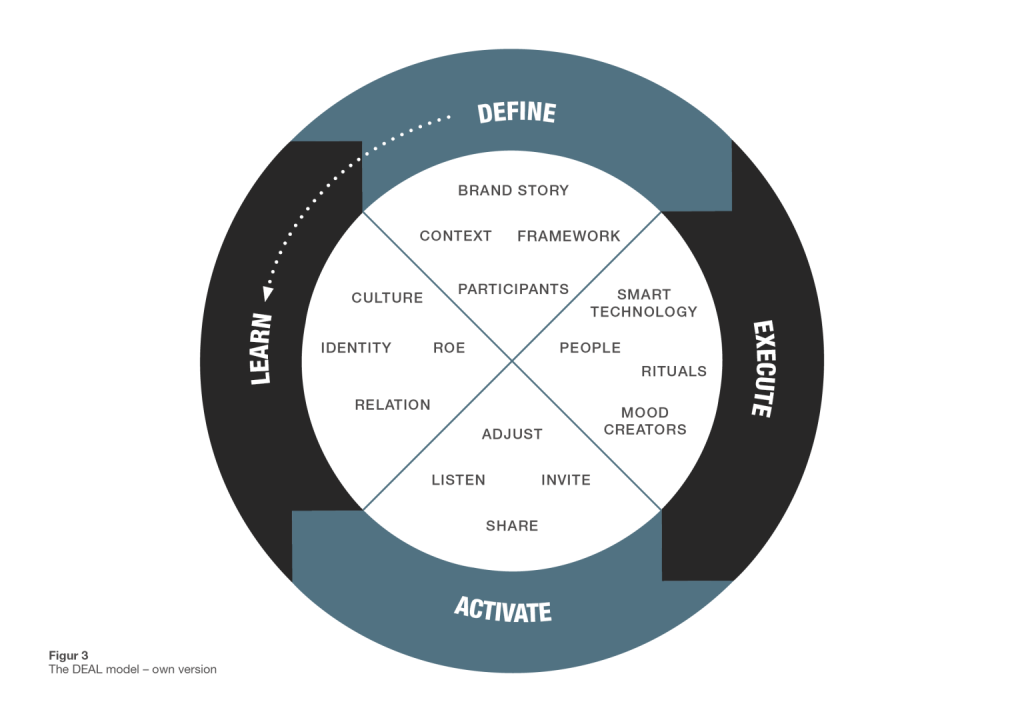The project was inspired by an observation among teachers that although online shopping continued to increase, more enticing shops appeared on the streets with supplementary offers to the goods they sold – for example, yoga classes (LuluLemon) and making one's own ice cream (Magnum).
The physical space as a branding channel

The project was part of the teaching on Entrepreneurship & Design and PBA Design and Business. First, the project aimed at uncovering the intent of the décor in selected stores. Next, it should develop a model that could help the retail industry to better use their physical space as a branding channel. This resulted in the DEAL model, which you can read more about in the attached material.
Participants:
From KEA, two teachers (Bettine Ortmann and Sofia Viholt) participated together with students from Entrepreneurship & Design.
First phase:
Students selected and contacted shops which they found interesting in relation to décor and supplementary activities. They interviewed the owners, transcribed the interviews, and prepared mood boards. Together with the teachers, they then analysed and compiled the interviews.
The following stores (retailers/brands) participated:
13zCafé&Studio, Arla, B&O, Casall, Han Kjøbenhavn, Henrik Vibskov, Hornsleth, Kims Chips, Louise Roe, Mikkeler, Mod, Nova Møbler, Nørrebro Bryghus, Paustian, Rains, RazSpa, Red Bull, Royal Unibrew, Salon, Staedtler, Stalks&Roots, Sticks'n'Sushi, Take Off CPH, Tuborg, Volvo, Whaly & Whiz, Wood Wood.
Second phase:
Teachers conducted interviews with the following retail experts: Peter Bur Andersen from the design agency Briq Group in Copenhagen, Melissa Gonzales from the New York-based agency, The Lionesque Group, Robert Erichsen from Reshape Retail, International brand strategist Allan Kruse, who works for Johannes Torpe Studio. Bastian Lind, Partner and Marketing Specialist at "Pureplayeren" and finally Barons, who have just launched their brand in the physical space.
Based on this, the DEAL model was developed. The model indicates a method for working with branding in the physical space, and by following this model, all significant aspects will be dealt with.
Third phase:
The creation of the elective subject "Branding in the physical space" allowed us to test and fine-tune the DEAL model. The students worked with cases from selected companies and developed concrete solutions based on the DEAL model and supplementary literature. The following companies supplied us with cases: Barons, Edie, Lampemesteren, Yoga Mood, Cam-cam Copenhagen, Son of a Tailor.
Teaching:
The DEAL model thus forms part of the teaching on the Entrepreneurship & Design programme and in the elective subject "The physical space as a branding channel" but the model is also an integral part of the teaching on Digital Management Culture, a skills development programme offered by the Danish Business Association and the Danish Board of Business Development
Contact person:
New podcast: branding in the physical space
Branding in the physical space has never been more relevant. This podcast focuses on the DEAL model, a guide to how to create strong brands in the physical space. Through interviews with experts and best-in-class retail brands, we learn more about how to work with branding in retail in the future.
The physical space as a branding channel
This report is particularly relevant for retailers and others who want to work with the physical space as a way to strengthen their company's brand and business. In the report, you can get to know the DEAL model, which can be followed as a guide when you need to brand yourself in the physical space.
The report was written by lecturers Bettine Ortmann and Sofia Viholt.
The Physical Space as a Branding Channel - report (pdf)


